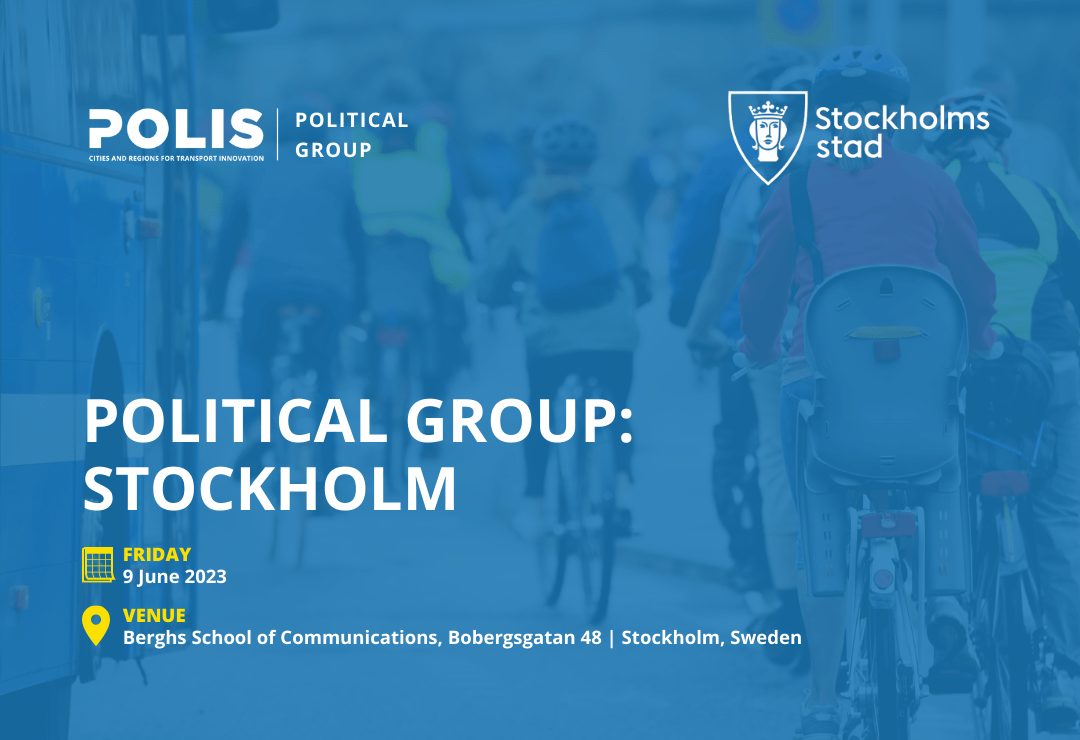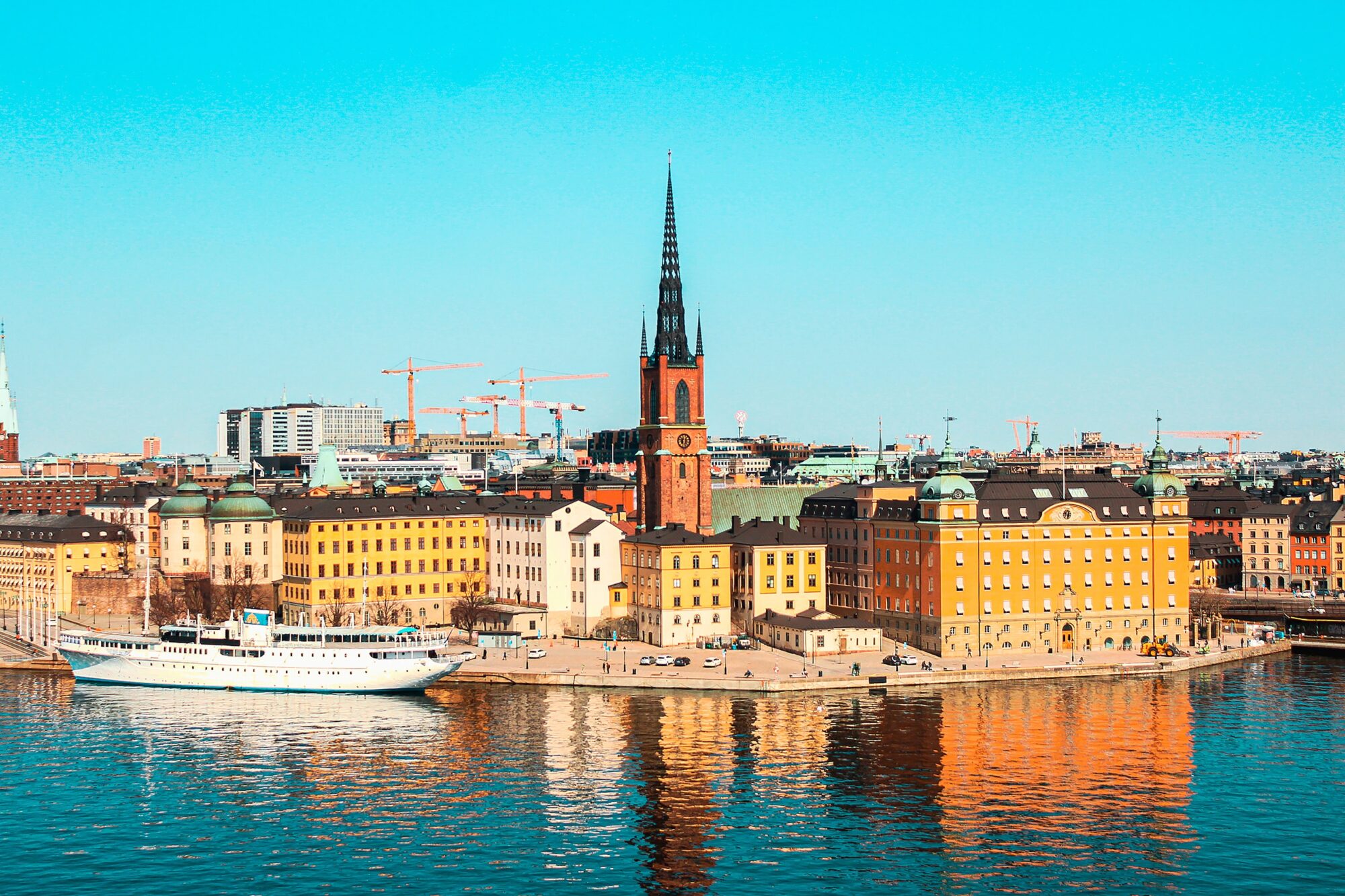Rethinking mobility with local and regional political leaders in Brussels... all the way to Stockholm
Local and Regional political leaders met in Brussels in December 2022 to discuss how to rethink mobility. They will meet again in June 2023 in Stockholm, Sweden: are you ready?
Urban mobility needs to change — actually, not just change, but transform, and fast. But what do we need, where and how? As POLIS prepares for the next Political Group meeting in Stockholm this June, we reflect on what the meeting in Brussels in December 2022 revealed.
According to the latest IPCC Report, global carbon emissions must fall by 45% by 2030, and reach net zero by 2050, to stave off devastating climate change. Failing to achieve this will make many European cities uninhabitable. There is still time, but success will not be achieved without profound changes to urban mobility — transport is currently responsible for around one-fifth of the global CO2 emissions, with urban passenger transport accounting for nearly a third of this.
Changing at such a scale and speed is, first of all, a societal challenge — requiring brave and intelligent political leadership. This decade is critical — 2030 looks far away, but it will arrive in the blink of an eye. Local and regional leaders attending the Brussels Political Group Meeting in December laid out and discussed all the key ingredients: clear goals, close cooperation, determined leadership and inclusive solutions.
Leaders help each other
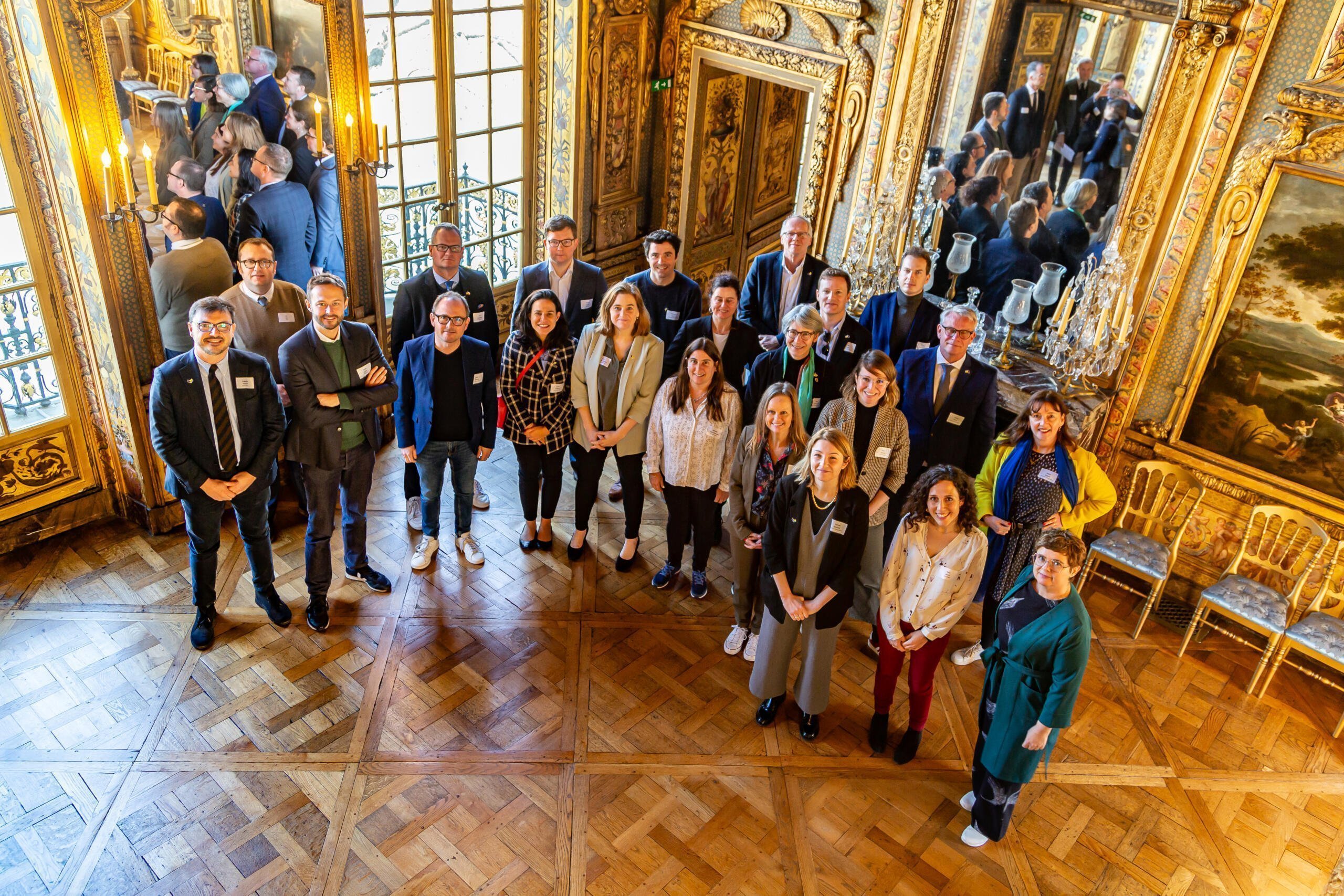
The POLIS' Political Group in Paris
The POLIS Political Group brings together elected leaders with mobility portfolios across POLIS’ member cities, provinces, and regions; convening twice a year (check our previous meeting in Paris) to discuss common challenges, shape strategies and carve shared messages. It is also an opportunity to interact with high-level representatives from European institutions to voice concerns, call for support, and highlight the crucial role of cities and regions.
The meeting in Brussels checked all boxes — and more. A full house of local and regional decision-makers championing decarbonisation and transport justice shared good practices, exchanged advice, and met with representatives from the European Parliament, the Committee of the Regions, and the European Commission.
As Karen Vancluysen, POLIS Secretary General, pointed out:
"Political leadership is key, but we can’t expect it to just ‘pop up’ by magic here and there. These meetings provide a safe and stimulating environment to help those who are leading the way to support each other, and to encourage more leaders to step forward.”
We need a new vision
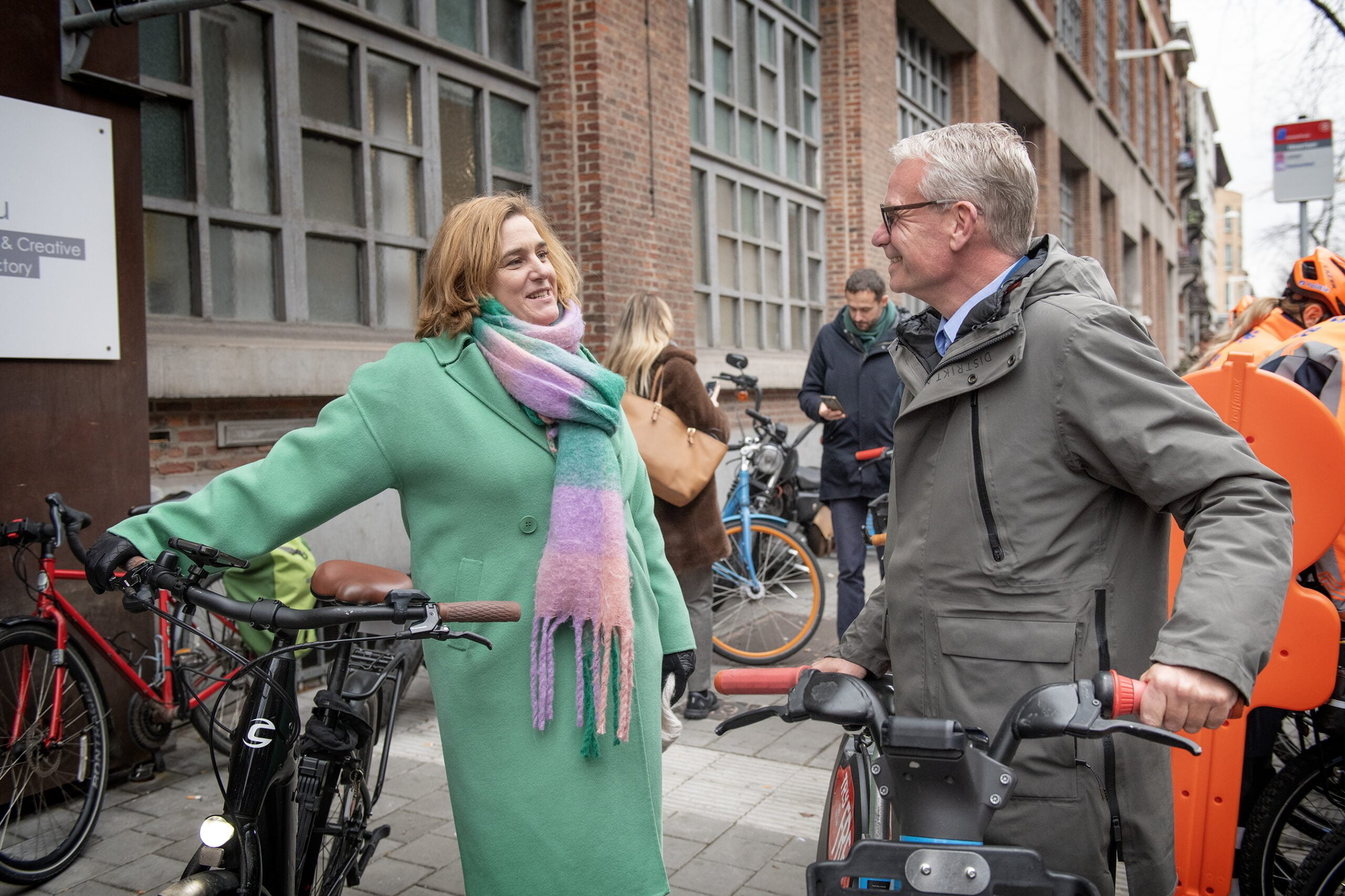
Elke Van den Brandt during the Brussels' POLIS Political Group city excursion — Credits: Simon Pugh
The Brussels POLIS Political Group meeting was hosted by Elke Van den Brandt, Minister of Mobility, Public Works and Road Safety, at the Brussels Capital Region. Her Good Move Plan has braved stormy political waters and is now delivering solid results. Underlying the physical measures, we find solid principles. As she said:
“In 15 years, we shouldn’t need to say ‘be careful’ to kids who are going to bike in our cities, but ‘be joyful’. If we really want to make an inclusive city, we need to make it safe for everyone living in it, which requires us to rethink our understanding of mobility.”
These words resonate more and more across Europe. As Gabriela Lněničková, Member of the City Assembly, Committees for Transport, Urban Planning and European Affairs, City of Prague, said, “Our job is to change the city to ensure children can move around safely, not just teaching them to survive in a car-filled environment.”
Navigating the narrative
To talk the talk, you’ve got to walk the walk… or even cycle the cycle. Yet, this is often easier said than done. “Build it, and they will come" goes the oft-used refrain. However, as we have witnessed across the last year, this is not quite true: reallocation of space towards more sustainable modes of transit can be politically contentious, and there is no room for complacency.
Ensuring citizens and leaders work together requires clear, comprehensive, and authentic dialogue with citizens, convincing them their actions are to their benefit, and addressing the perceived losses but demonstrating the gains, too.
Eugenio Patanè, Councillor for Mobility, City of Rome, explained:
“Rome is in the middle of a true revolution in mobility, and we want citizens to fully understand our new measures. More than just using social media as a way to reach them, it is essential to go and talk to them in person, using their own language.”
Cilia Daemen, Deputy Mayor for Mobility, Health, Inclusion and Climate Adaptation, City of Nijmegen emphasised the importance of “starting communication where our citizens are, in their own environment. This is not easy, since all of our citizens live in different neighbourhoods: it, therefore, becomes key to start from the narrative of each separate area rather than using a one-size-fits-all solution.”
Citizens front and centre
The statistics are crystal clear: the current transport model is NOT in the average citizen’s favour. Air pollution is the leading killer of children in Europe and the US — one of the main drivers of pre-mature deaths and long-term health problems; on-street parking takes up extensive space, yet car ownership is often the reserve of more affluent groups; and in 2021 alone, the EU-27 racked up almost 20,000 road-related deaths.
“Beyond defining key pillars of what makes sustainable mobility, it is important to make people increasingly aware of the dangerous pollutants and health issues they face when using individual means of transport such as cars,” said Seb Dance, Deputy Mayor of London for Transport.
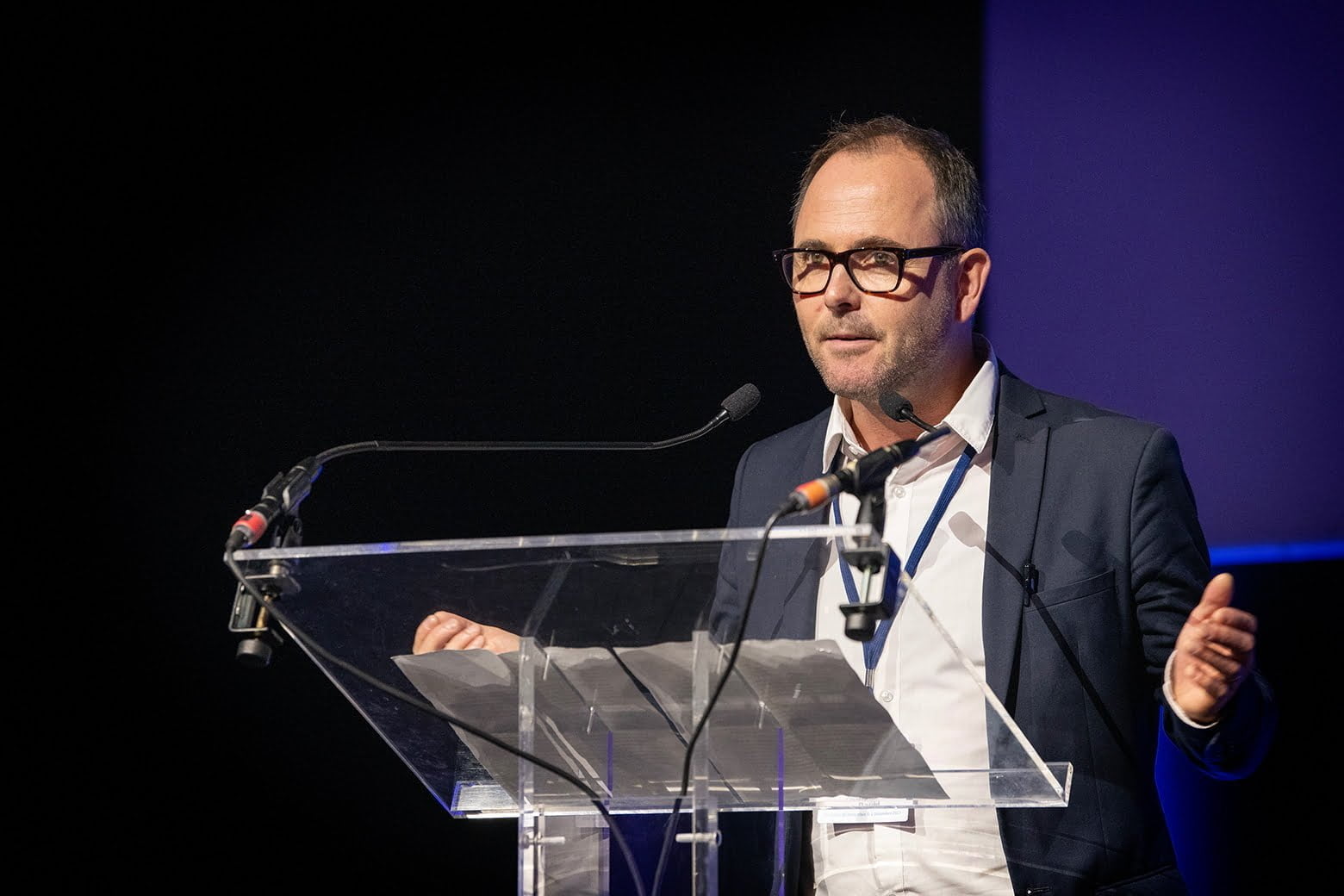
David Dessers at the POLIS Conference 2022 — Credit: Simon Pugh
Yet, research (and responses on the ground) demonstrate citizens continue to feel locked out of the shifts being enacted.
David Dessers, Vice Mayor, of Mobility, Climate & Sustainability, City of Leuven, offered his perspective on what narrative can most connect with citizens:
“To have people connect with our policies, we need to find the right narrative to talk to them. This means going beyond the angle of climate change and looking at personal issues, such as health and accessibility.”
Indeed, Leuven’s cooperation model, Leuven2030, holds lessons for others. Leuven 2030 is a non-profit organisation which convenes 600 local partners and civil society representatives, all working towards the goal of climate neutrality through small and large-scale actions and projects; this is "With and for the whole of Leuven"!
Inclusion at the heart of a Just Transition
Electrification, mechanisation, and automation are vital, but they cannot overlook the heart of our urban mobility systems: people and urban life. Affordability, accessibility, and availability of services, irrespective of gender, citizenship, race or sexuality are non-negotiable.
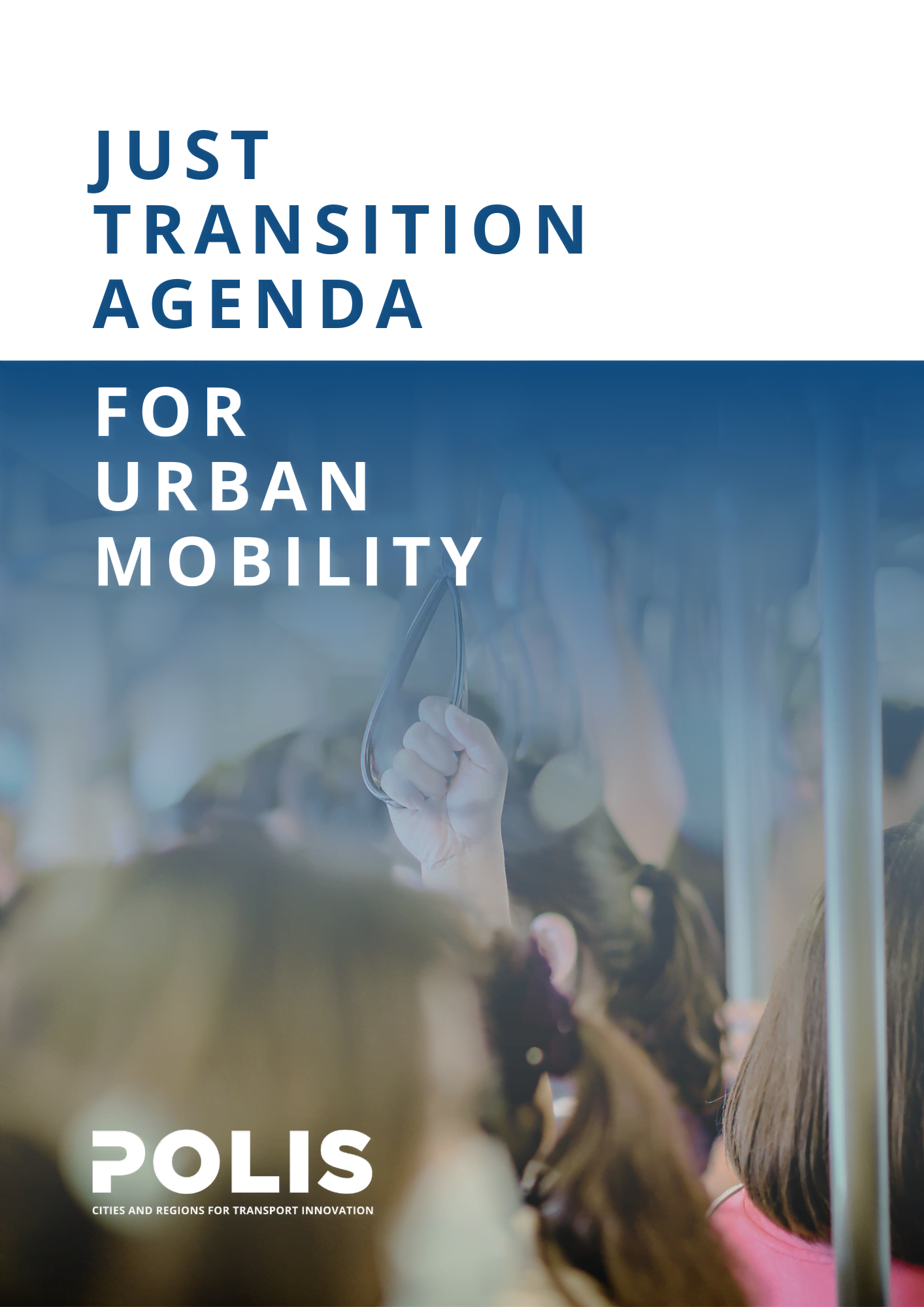
POLIS published a 'Just Transition Agenda For Urban Mobility' in December 2021
Putting inclusion at the heart of the transition requires more — much more, and much deeper — than a technical approach. People need to be, well, moved. For good reason — as Carlotta Bonvicini, Deputy Mayor for Sustainable Policies, City of Reggio Emilia, said, “the concept of beauty within public places is essential to inclusion because it makes people feel welcomed. The real challenge we should address is effectively transferring this idea within the transport space.”
This starts with diversifying decision-making in the transport sector — a sector which is struggling to address its lack of diversity.
Indeed, gender diversity is a leading concern. Women account for just 22% of Europe’s transport workforce. When you consider that women make up almost 50% of the wider European workforce, these figures are staggering — if not shocking. At the same time, women make up just 15.5% of ministers with transport portfolios across the 27 EU Member States.
Without a spectrum of voices in decision-making, services will never be able to fully cater for all. Elke Zimmer, State Secretary, of State of Baden-Württemberg, was clear on this point:
“We want to get women. This is a critical issue in the mobility sector - in our experience, 80% of actors involved are men, making it a real challenge to get the female perspective.”
Together for action
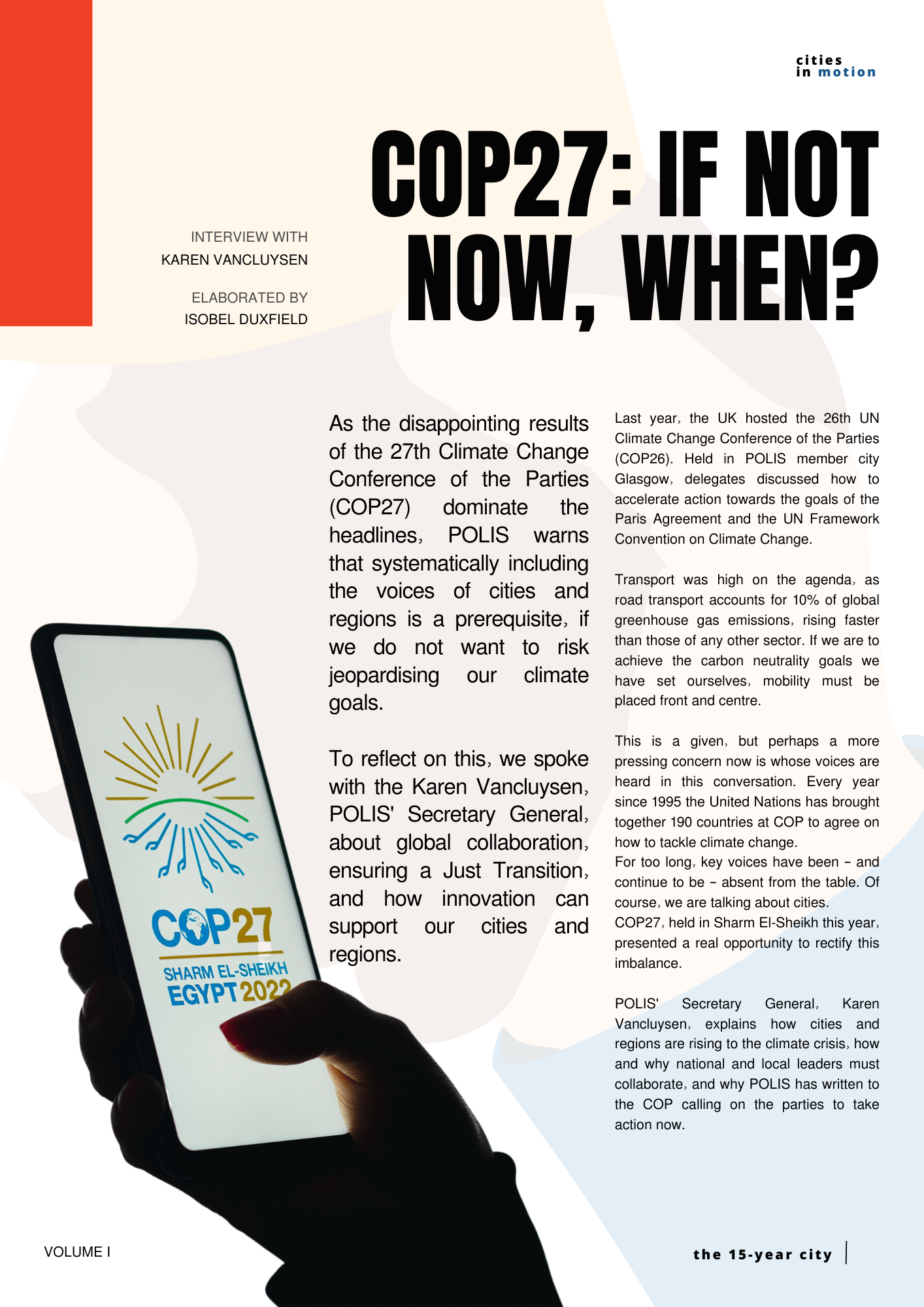
POLIS tacked the topic of the COP27 in multiple articles - here an example of our Cities in motion contribution to the topic
Cities are where we will win or lose the battle against climate change. Today, 55% of the world’s population lives in urban areas, a proportion expected to increase to 68% by 2050. Cities are also where we are seeing some of the most prolific and transformative changes. This is when we saw national and international decision-makers seem paralysed at COP27.
However, this is not a zero-sum game, it is not about pitting local and national leaders against one another, it is about building coalitions. Cities cannot achieve ambitious climate targets alone, they urgently need support from national and international decision-makers.
As Lars Strömgren, Vice Mayor, of the City of Stockholm, said:
“It is very important that when we connect the local, regional, and EU level, we can learn a lot from each other, and understand the similarities and differences between them”.
For an action-oriented network such as POLIS, this is about learning to act — and to push for action.
As Suzanne Otters-Bruijnen, Regional Minister for Mobility, Internal Organisation and European Programmes, Province of Noord-Brabant, pointed out:
“We need to push together at the EU level for dedicated policy and investment in safe cycling infrastructure.”
Regions too have skin in the game and serve as a key bridge between local and national level governance.
“Please include regions — they can help bring forward effective SUMPs and provide valuable insights on urban nodes,” urged Chris de Veer, Strategic Advisor - Smart Mobility at the Province of Noord-Holland.
As Jeroen Olthof, Regional Minister, Mobility and Accessibility, Liveability, Health and Environment, and Aviation and Schiphol, Province of Noord-Holland, made clear:
“Sustainable mobility requires measures at both city and regional level. There’s no point in having clean cities and polluted fringes.”
High-level European contacts
The meeting also offered opportunities for local political leaders to exchange with high-level representatives of the European Union, the likes of Karima Delli, Chair of the Committee on Transport and Tourism, European Parliament, Linda Gaasch, Member of the European Committee of the Regions, Rapporteur of the Report on the “European Union’s Urban Mobility Framework”, and Patrick Child, Deputy Director General, EU Mission Manager of the Climate-Neutral and Smart Cities Mission, European Commission.
Karima Delli’s closing words quite summed up the discussion:
"The key for a just and sustainable mobility transition is not the states, but you, the cities. I believe cities and their citizens are the future, and it is only through them that we will be able to move forward in the mobility revolution.”
What is next?
On 9 June, the POLIS Political Group meets again in Stockholm, where the conversation (and action) continues. This meeting takes place right after the POLIS Leadership Summit (8 June 2023).
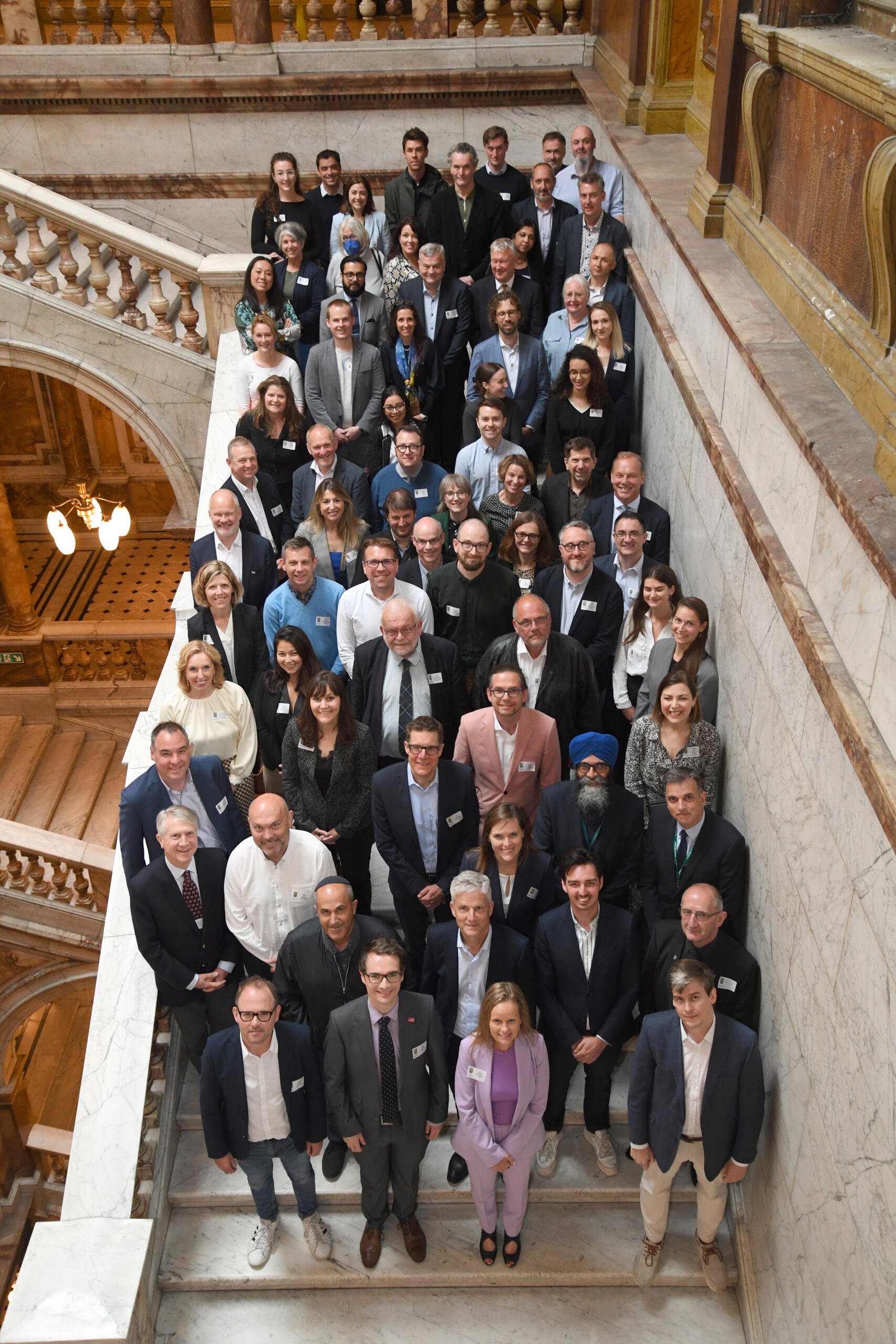
POLIS Leadership Summit in Glasgow
The POLIS Political Group (9 June 2023) is a closed-door meeting for political officials and related advisors only where Chatham House Rule applies, i.e., participants are free to use the information received but must refrain from attributing the source and context. Participants may join following a direct invitation from Pedro Homem de Gouveia.
More POLIS leadership action!
The POLIS Leadership Summit (8 June 2023) is designed as an intimate assembly of key stakeholders working at the forefront of sustainable and accessible urban mobility. This year's event follows the POLIS' 2022 Leadership Summit in Glasgow, where local and regional leaders from across the mobility sector met to address the transition to zero-emission and the decarbonisation of transport. Registrations to the POLIS Leadership Summit will be open in the coming weeks.
For more information on the Political Group and the event in Stockholm, please contact pgouveia@polisnetwork.eu.
